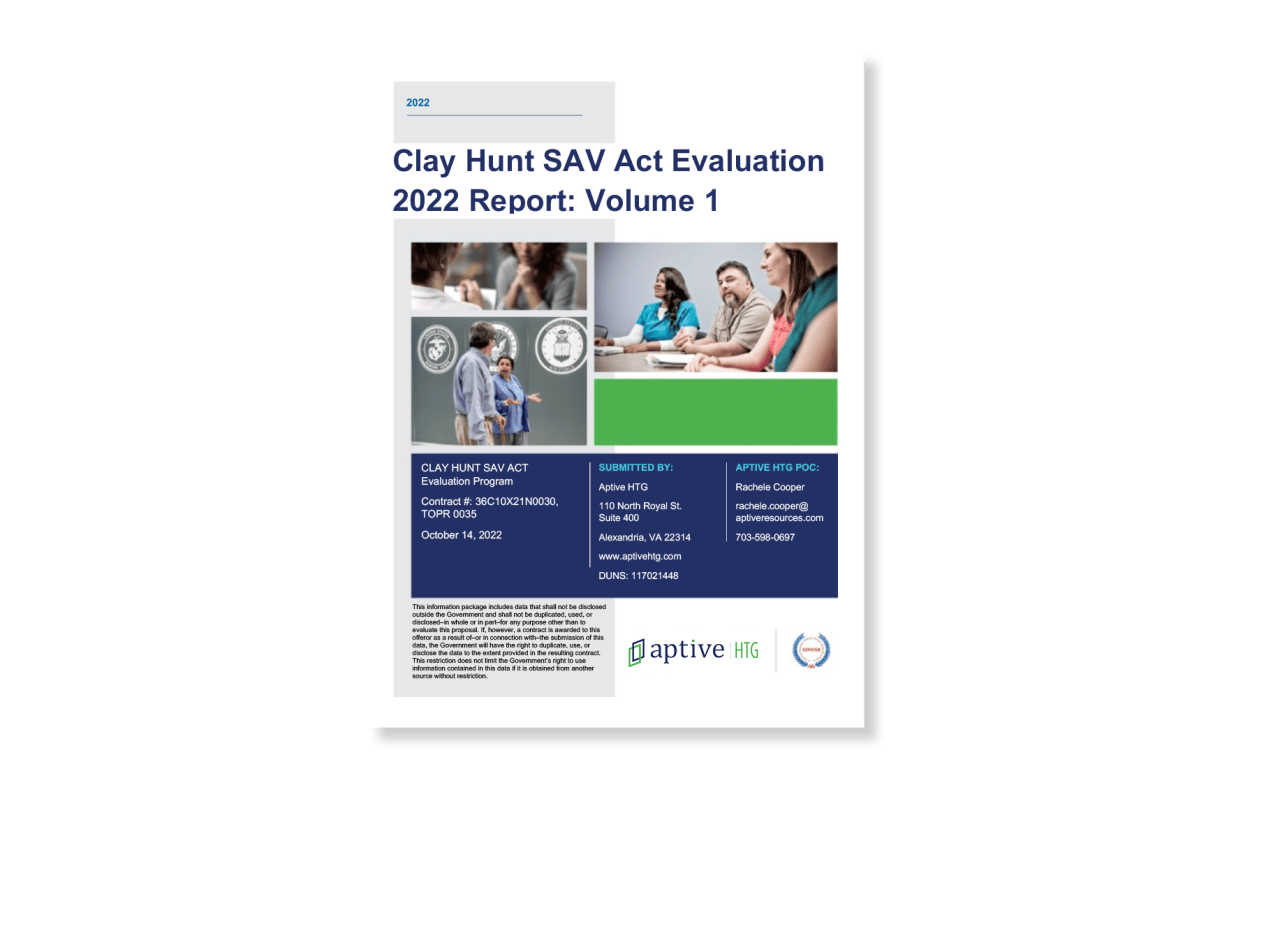Solutions
Aptive has extensive experience with evaluation methodology, data analysis and project management. Under the Clay Hunt Act contract, Aptive conducts the nation’s largest suicide prevention and mental health program evaluation for the largest integrated health care system in the country—the Veterans Health Administration.
Reviewing current programs and interviewing VA experts
For the congressional reports produced so far, the first step was to thoroughly understand VA’s suicide prevention and mental health programs. To this end, Aptive reviewed VA’s literature on each program, including mental health handbooks and suicide prevention guides, and met with VA subject matter experts. These experts provided insight about program goals, effectiveness, patient access to care, relevant databases or metrics that could be used in the evaluation, how the COVID-19 pandemic potentially impacted programs and other pertinent program nuances and information. Through these interviews and information gathering, we developed strong awareness of the mental health care and suicide prevention mission and vision of VA experts and clinicians.
Designing and executing a comprehensive evaluation methodology and analysis plan
The evaluation team develops a comprehensive evaluation methodology and analysis plan; research questions about clinical outcomes; Veteran satisfaction and cost-effectiveness; and metrics, data sources and analytic methods.
We evaluate VA mental health care delivery in both inpatient and outpatient settings over the years to reduce suicide ideation and prevent mortality, as well as study the impact of social stigma and other factors on receiving care.
Aptive acquires the requisite health data for analysis and tests each data set for integrity and validity before conducting analyses. To analyze program effectiveness, we also measure target conditions, outcomes, intensity of care, comorbidities and other factors. To meet Clay Hunt Act requirements, we also independently evaluate VA health care system opioid prescribing practices compared with guidelines and recommendations set by other federal agencies. Our analysis differs from year to year in complexity and evaluation design.
Recommending program improvements and best practices
A critical component of the evaluation process is recommending best practices based on what we’ve learned. Therefore, we consulted more than two dozen mental health experts both within and outside VA. With this invaluable input, we drafted best practices recommendations and validated them through a panel of subject matter experts. Once Aptive and the panel finalized the recommendations, we compiled the information into the Annual Report to Congress.


